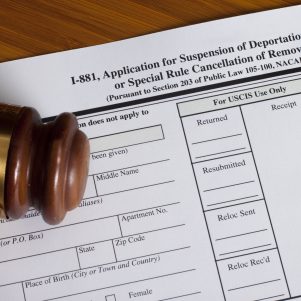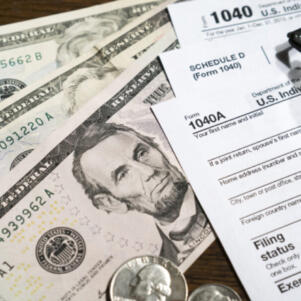Mayoral Candidate Says He Won’t Raise Property Taxes As Much As State Law Allows
By Matt McDonald | October 20, 2019, 23:50 EDT
 (Image courtesy of Flickr.com)
(Image courtesy of Flickr.com) A candidate for mayor of Brockton says he won’t raise property taxes as much as state law allows if he is elected.
Jimmy L. Pereira, an urban planner, made the pledge during a debate this past week.
It’s an unusual promise. Most local public officials assume that every year their city or town will increase the tax levy to about the maximum amount allowed under a state law known as Proposition 2 1/2, which is 2.5 percent plus allowances for new growth. Beyond that amount, a city or town needs approval from the voters in a municipal referendum.
The usual discussion about local property taxes is whether local officials should seek approval from voters to increase the levy limit beyond the ordinary limit – not whether to spend less than the city or town government is allowed without further approval.
Yet that’s what Pereira says he would do.
“If I’m elected as your mayor, I will guarantee to work hard on holding the line on property taxes,” Pereira said in his opening statement in the debate. “Over the last four years the city budget has increased over a hundred million dollars, and rapidly approaching half a billion dollars. What have we gotten in return? Our tax rates are unsustainable. Both residents and small businesses are leaving our city every day. Our infrastructure is crumbling. Our crime rate is out of control. Nepotism and political deals have decimated our financial status, and the burden has been placed on our hardworking taxpayers’ backs.”
Pereira identified city liabilities where he would attempt to rein in costs, including an alternative water supply the city has and pending discrimination lawsuits against the city.
“My team and I have a $25 million saving costing plan that will help enable us to run the city going forward without the need to tax you to the full 2 ½ levy every single year. It’s time for the elderly and those on limited incomes to be able to have a break – a long-overdue tax break,” Pereira said.
Pereira is one of two candidates on the general election ballot running for mayor of Brockton next month.
Pereira, 27, said during the debate that he was born and raised in Brockton, but that two older siblings were born in Cape Verde. He said he grew up “in a single-mother household in the toughest neighborhoods.”
Pereira said he went to Westfield State University, where he majored in geography and regional planning, minoring in ethnic and gender studies.
Pereira works as a community and transportation planner for the Old Colony Planning Council, a state agency headquartered in Brockton that offers regional planning for cities and towns in the Brockton area.
The other candidate, Robert F. Sullivan, 49, a lawyer, current president of the Brockton City Council, and a city councilor since 2006, did not address the city’s property tax levy during the 90-minute debate, which took place Thursday, October 17 at Massasoit Community College in Brockton. (A video of the debate was published on YouTube by Brockton Community Access.)
Sullivan touted his experience on the city council, particularly with budgets.
Sullivan expressed support for targeted property tax breaks for businesses in certain areas of the city in order to retain existing businesses and attract new businesses.
He also said the city, which is one of the poorest in Massachusetts, has been moving in the right direction.
“So Brockton can be a wonderful place for investment. We’ve seen it. It needs to continue,” Sullivan said. “That train that Mayor Carpenter started has to continue down the track. And I hope to be the cheerleader.”
Bill Carpenter, who was first elected mayor in 2013 and was planning to seek a fourth two-year term this fall, died unexpectedly this past July 3.
Carpenter defeated Pereira in November 2017, 52 to 44 percent.
During the debate Thursday, Pereira did not repeat his lower-taxes pledge after his introductory statement. It was the only unusual position expressed by either candidate, who otherwise described conventional stances — agreeing on the importance of public education, public safety, and economic development, for instance.
Each also pledged to make transportation improvements in Brockton, which is extraordinarily difficult to drive through because of odd angles of intersections, numerous one-way streets, and non-synchronized traffic lights.
Neither one seemed eager to see a return of a sanctuary city resolution, which Brockton city councilors rejected on a 4-6 vote (with one councilor absent) on May 28, two months after Carpenter said he would veto it if it passed.
Sullivan on Thursday said he opposed the measure in May because a city government lawyer said it conflicts with federal law and because it would jeopardize federal funding that Brockton relies on, particularly for law enforcement.
Pereira did not directly state a position on the measure, but he said he doesn’t expect the city to embrace such a measure in the future.
“I think Brockton, whether it be fortunate or unfortunate, will never be a sanctuary city. This is a dead issue,” Pereira said.
Both candidates expressed skepticism about allowing new charter schools, arguing that they take away state education funding from conventional local public schools.
At 95,000 people, Brockton is the sixth largest city in Massachusetts. It’s about 19 miles south of Boston.
About 42 percent of the population is white, about 41 percent black, according to U.S. Census data. About 11 percent is Latino. About 28 percent is foreign-born. A language other than English is spoken in about 43 percent of homes.
Sullivan and Pereira are the two finalists for mayor, after finishing one-two in the September preliminary election. Sullivan won a plurality of 5,083 votes, or 38 percent, but was far short of an outright majority. Pereira got 3,321 votes, or 25 percent.
In all, seven candidates got votes in September, including four who got more than 1,000 votes. If turnout next month is similar, the ultimate winner will need support from voters who in the preliminary election chose city councilor Jean Bradley Derenoncourt, a naturalized Haitian immigrant who co-sponsored the sanctuary city measure (2,876 votes, or 21 percent); or former state representative and judge Mark E. Lawton, who opposes sanctuary-city status (1,921 votes, or 14 percent).
While the city tilts heavily Democratic, Brockton’s local elections are nonpartisan.
The general election in Brockton is Tuesday, November 5.











